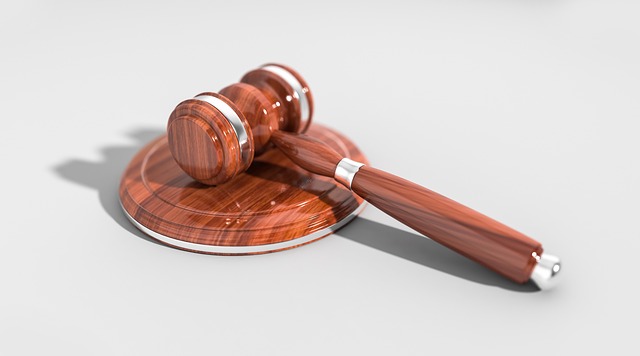Antitrust violation cases target business practices that hinder competition, harm consumers, and distort market dynamics. Suing for false advertising under antitrust laws involves several steps: identifying violations by scrutinizing ads and gathering evidence, filing a complaint with federal court, pre-trial discovery, and ultimately, a decision based on presented evidence. Meticulous evidence gathering, expert opinions, and experienced legal counsel are crucial for building a strong case. Success can lead to monetary compensation and deter future economic crimes. For consumers or businesses, understanding these steps is key in navigating the process of suing for false advertising.
Antitrust violation cases play a crucial role in maintaining fair market competition. This article delves into the intricacies of these legal battles, offering a comprehensive guide on understanding and addressing false advertising in business practices. From defining and scoping antitrust violations to outlining the legal process—including steps to sue for false advertising—and providing strategies for building a successful case, this resource equips readers with essential knowledge for navigating such complex matters.
- Understanding Antitrust Violation Cases: Definition and Scope
- Identifying False Advertising in Business Practices
- The Legal Process: How to Sue for Antitrust Violations
- Strategies for Success: Building a Solid Case for Compensation
Understanding Antitrust Violation Cases: Definition and Scope

Antitrust violation cases encompass a wide range of business practices that restrict competition, harm consumers, and distort market dynamics. These legal battles revolve around laws designed to promote fair trade and prevent monopolies from dominating markets. When companies engage in strategies like price-fixing, market allocation, or abuse of dominant market positions, it triggers investigations by antitrust authorities. Such violations can have severe consequences, leading to substantial fines, structural changes in businesses, and even criminal charges for individuals involved.
Understanding the scope of these cases is crucial for both consumers and businesses. For those considering steps to sue for false advertising, which falls under the umbrella of antitrust violations, it involves demonstrating that a company’s actions misled consumers or restricted their ability to make informed choices. Whether through jury trials or negotiations with white-collar defense strategies, navigating these legal complexities requires careful assessment of market behaviors and their impact on the wider philanthropic and political communities.
Identifying False Advertising in Business Practices

Identifying false advertising in business practices is a crucial step for both corporate and individual clients seeking justice. The first step in the process, often the most challenging, is recognizing deceptive tactics. Companies may use misleading claims, unsubstantiated product promises, or exaggerated marketing materials to attract customers. By scrutinizing advertisements, reviews, and promotional content, potential plaintiffs can uncover these falsehoods.
When considering steps to sue for false advertising, it’s essential to gather evidence. This involves collecting data such as purchase records, receipts, emails with claims, and similar documents that support the argument of deception. With solid evidence in hand, for his clients across the country, legal professionals can navigate the complexities of antitrust violation cases, ensuring a strong claim is presented to recover damages incurred due to false advertising.
The Legal Process: How to Sue for Antitrust Violations

The legal process to sue for antitrust violations, including false advertising, involves several key steps. Firstly, individuals or businesses who believe they’ve been harmed by anti-competitive practices must identify the specific violation, such as price-fixing, market division, or false advertising. This requires gathering evidence, including documents, records, and expert opinions, to demonstrate the violation’s existence and its impact on their business or consumers.
Once prepared, a complaint is filed with the appropriate court, typically a federal district court. The case then progresses through pre-trial discovery, where both parties exchange information and evidence. This crucial phase helps build the case and may lead to settlements, avoiding the time and cost of a trial. If the case proceeds, a judge or jury will ultimately decide based on the presented evidence, ensuring fairness and competition across the country while considering the interests of philanthropic and political communities.
Strategies for Success: Building a Solid Case for Compensation

Building a strong case for compensation is paramount when pursuing antitrust violation cases, especially when alleging false advertising. The first steps involve meticulously gathering evidence to prove that there was indeed an unfair business practice. This includes documenting any misleading marketing strategies, analyzing market data to demonstrate harm caused by the false advertising, and obtaining expert opinions to bolster your argument. Engaging experienced legal counsel who specializes in antitrust law is crucial; they can guide you through the complexities, ensuring your case aligns with relevant laws and regulations.
For a successful outcome, it’s essential to present a clear and concise narrative that links the defendant’s actions directly to consumer harm. By following structured steps, such as thoroughly researching similar cases (precedents), preparing compelling witness testimonies, and crafting persuasive legal arguments, you increase your chances of achieving extraordinary results. Whether representing corporate or individual clients in these intricate matters, a well-construed case can lead to significant monetary compensation and deter future white-collar and economic crimes.
Antitrust violation cases, particularly those involving false advertising, can significantly impact businesses and consumers alike. Understanding the legal process and strategies for success is crucial. By identifying misleading business practices and taking the necessary steps to sue for false advertising, individuals and organizations can protect their rights and seek compensation. Following a clear legal pathway and building a solid case are key to navigating these complex matters effectively.






